
Aug 3
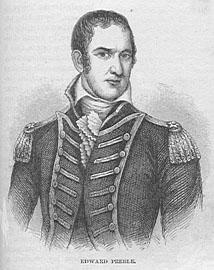
1804 First Barbary War: US naval forces attack the heavily defended harbor of Tripoli. Extract from journal kept on board the US Frigate USS Constitution by Captain Edward Preble:
Standing off shore on the Starbo[a]rd Tack the signal out to come within hail spoke the different Vessels and acquainted their Commanders that it was my Intention to attack the shipping & Batteries . . . directed the Gun Boats & Bombs to be prepared for immediate service . . . the Action commenced on our side by throwing a shell into the Town, and in an Instant the whole Squadron were engaged. [For the full text, Click here.]
1887 Birth: Rupert Brooke:
Rupert Brooke was born on 3 August 1887. His father was a housemaster at Rugby School. After leaving Cambridge University, where he became friends with many of those in the 'Bloomsbury Group', Brooke studied in Germany and travelled in Italy. In 1909 he moved to the village of Grantchester, near Cambridge, which he celebrated in his poem, 'The Old Vicarage, Grantchester' (1912). His first collection of poems was published in 1911. In 1913, Brooke became a fellow of King's College, Cambridge, his old college.
In the same year, he left England to travel in North America, New Zealand and the Pacific islands. He returned home shortly before the outbreak of World War One. He was commissioned into the Royal Naval Division and took part in the disastrous Antwerp expedition in October 1914. In February 1915, he set sail for the Dardanelles. On board ship he developed septicaemia from a mosquito bite. He died on 23 April 1915 on a hospital ship off the Greek island of Skyros and was buried in an olive grove on the island.
Rupert Brooke caught the optimism of the opening months of the war with his wartime poems, published after his death, which expressed an idealism about war that contrasts strongly with poetry published later in the conflict. (BBC.co)
"If I should die, think only this of me:
That there's some corner of a foreign field
That is forever England." (The Soldier)
1900 Birth: Ernie Pyle:
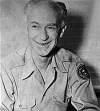
After studying journalism at Indiana University he found work on a small newspaper in La Porte, Indiana. In 1923 he moved to the Washington Daily News and eventually became the paper's managing editor.
In 1932 he was commissioned to write a travel column for the Scripps-Howard newspaper chain. He did this until the outbreak of the Second World War when he became a war correspondent. He moved to England in 1940 where he reported on the Blitz for the New York World Telegram.
Pyle went with the US Army to North Africa in November 1942. This was followed by the invasions of Sicily and Italy. He also accompanied Allied troops during the Normandy landings and witnessed the liberation of France. By 1944 Pyle had established himself as one of the world's outstanding reporters and Time hailed him as "America's most widely read war correspondent."
In 1945 Pyle was awarded the Pulitzer Prize for journalism. Later that year he went with US troops to Okinawa. On 17th April, 1945, Ernie Pyle was killed by a Japanese sniper while on a routine patrol on 17th April, 1945.(spartacus.schoolnet.co.uk)

Hitler: Town of the Mice, Vienna
1910 (Exact Date Unknown): Siegfried Loeffner, a Jewish postcard salesman, who often sold pieces for street artist Adolf Hitler, spots Reinhold Hanisch on the street and confronts him about his misappropriation of Hitler’s paintings. When the two argue loudly and begin to scuffle, a policeman intercedes. Learning the nature of the dispute, and discovering that Hanisch does not carry the proper identification, he hauls the both of them off to the district police commissariat of Weiden. For some reason Loeffner claims that he does not know Hitler personally, when of course he does, and swears out a formal statement to the police:
Siegfried Loeffner, agent, XXth District, 27 Meldemannstrasse, states: I learned from a painter at the men’s hotel that the arrested man sold pictures for him, and had misappropriated the money. I do not know the name of the painter, I only know him from the men’s hotel, where he and the arrested man always used to sit next to each other.20 [For further details, Click here.]
1911 Airplanes are used for the first time in a military capacity when Italian planes reconnoiter Turkish lines near Tripoli.
On the eve of the World War I, no country was prepared for using aircraft or had even admitted they would make an effective weapon of war. Several had experimented with dropping bombs from aircraft, firing guns, and taking off and landing from aircraft carriers, but no country had designed or built aircraft specifically for war functions. Limited bombing operations had been carried out before 1914, but most thought that aircraft use was limited to reconnaissance or scouting missions.
An October 1910 editorial in Scientific American, a respected publication, denigrated the airplane as a war weapon: "Outside of scouting duties, we are inclined to think that the field of usefulness of the aeroplane will be rather limited. Because of its small carrying capacity, and the necessity for its operating at great altitude, if it is to escape hostile fire, the amount of damage it will do by dropping explosives upon cities, forts, hostile camps, or bodies of troops in the field to say nothing of battleships at sea, will be so limited as to have no material effects on the issues of a campaign . . . . But some effort was made to use aircraft for military purposes. Some of the earliest efforts took place in Italy. In April 1909, the newly formed Italian aviation club, Club Aviatori, brought Wilbur Wright to Italy to demonstrate his Military Flyer at the Centocelle military base near Rome. Before leaving Rome, Wilbur trained the naval officer who would become Italy's first pilot, Lieutenant Mario Calderara. In 1910, Italy set up its first military flying school at Centocelle.
1914 World War I: Various:
Germany and France declare war on each other:
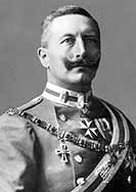
On the afternoon of this day in 1914, two days after declaring war on Russia, Germany declares war on France, moving ahead with a long-held strategy, conceived by the former chief of staff of the German army, Alfred von Schlieffen, for a two-front war against France and Russia. Hours later, France makes its own declaration of war against Germany, readying its troops to move into the provinces of Alsace and Lorraine, which it had forfeited to Germany in the settlement that ended the Franco-Prussian War in 1871.
With Germany officially at war with France and Russia, a conflict originally centered in the tumultuous Balkans region-with the assassination of Austrian Archduke Franz Ferdinand and his wife by a Serbian nationalist in Sarajevo on June 28, 1914, and the subsequent standoff between Austria-Hungary, Serbia and Serbia's powerful Slavic supporter, Russia-had erupted into a full-scale war. Also on August 3, the first wave of German troops assembled on the frontier of neutral Belgium, which in accordance with the Schlieffen Plan would be crossed by German armies on their way to an invasion of France. The day before, Germany had presented Belgium and its sovereign, King Albert, with an ultimatum demanding passage for the German army through its territory.
This threat to Belgium, whose perpetual neutrality had been mandated by a treaty concluded by the European powers-including Britain, France and Germany-in 1839, united a divided British government in opposition to German aggression. Hours before Germany's declaration of war on France on August 3, the British foreign secretary, Sir Edward Grey, went before Parliament and convinced a divided British government-and nation-to give its support to Britain's entrance into the war if Germany violated Belgian neutrality.
"The lamps are going out all over Europe; we shall not see them lit again in our lifetime," Grey famously remarked to a friend on the night of August 3. The next day, Britain sent its own ultimatum to Berlin: halt the invasion of Belgium or face war with Britain as well. A reply was demanded by midnight that night. At noon that day, King Albert finally made a concerted appeal for help to France and Britain, as guarantors of Belgium's neutrality according to the Treaty of 1839. To do so earlier, to call in the French and British too soon, would have risked violating his country's neutrality before Germany had done so. When London received no answer to its ultimatum-the first German troops had in fact crossed the Belgian frontier at Gemmerich, 30 miles from the fortress city of Liege, that morning-Britain declared war on Germany.
In August 1914, as the great powers of Europe readied their armies and navies for a fight, no one was preparing for a long struggle—both sides were counting on a short, decisive conflict that would end in their favor. "You will be home before the leaves have fallen from the trees," Kaiser Wilhelm assured troops leaving for the front in the first week of August 1914. Even though some military leaders, including German Chief of Staff Helmuth von Moltke and his French counterpart, Joseph Joffre, foresaw a longer conflict, they did not modify their war strategy to prepare for that eventuality. One man, the controversial new war secretary in Britain, Lord Horatio Kitchener, did act on his conviction that the war would be a lasting one, insisting from the beginning of the war—against considerable opposition—on the need to build up Britain's armed forces. "A nation like Germany," Kitchener argued, "after having forced the issue, will only give in after it is beaten to the ground. This will take a very long time. No one living knows how long." (History.com)
Adolf Hitler will claim that he had joined the huge crowds gathered at Munich's Odeonsplatz, who were listening to speeches by various soldiers and politicians, and singing "The Watch on the Rhine" and other patriotic songs in the intervals between the speeches. One particularly rowdy bunch demolishes the Cafe Fahrig, on the Karlsplatz, because the band declined to repeatedly play the national hymn. Years later, Hitler's photographer, Heinrich Hoffman, who was there that day taking pictures of the surging crowds, will publish a photograph that purports to show a cheering Hitler in the midst of the crowd. While there is no reason to believe that Hitler was not among those on the Odeonsplatz that day, there is some inconclusive evidence that the photograph itself may have been altered to bolster Hitler's claim. Either way, there can be no doubt that these events thrilled Hitler, as nothing in his life ever had. His desire to participate on the front lines is extremely palatable to him.
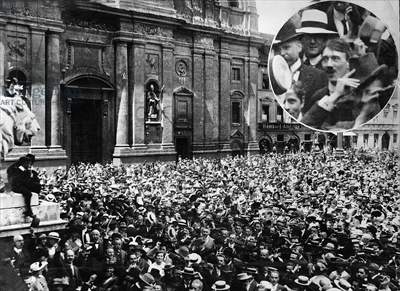
Note: There is some controversy concerning the authenticity of the above iconic image. [For further details, Click here]
From Mein Kampf:As a boy and young man I had so often felt the desire to prove at least once by deeds that for me national enthusiasm was no empty whim. It often seemed to me almost a sin to shout hurrah perhaps without having the inner right to do so; for who had the right to use this word without having proved it in the place where all playing is at an end and the inexorable hand of the Goddess of Destiny begins to weigh peoples and men according to the truth and steadfastness of their convictions? Thus my heart, like that of a million others, overflowed with proud joy that at last I would be able to redeem myself from this paralyzing feeling. I had so often sung 'Deutschland ueber Alles' and shouted 'Heil' at the top of my lungs, that it seemed to me almost a belated act of grace to be allowed to stand as a witness in the divine court of the eternal judge and proclaim the sincerity of this conviction. For from the first hour I was convinced that in case of a war - which seemed to me inevitable - in one way or another I would at once leave my books. Likewise I knew that my place would then be where my inner voice directed me. I had left Austria primarily for political reasons; what was more natural than that, now the struggle had begun, I should really begin to take account of this conviction. I did not want to fight for the Habsburg state, but was ready at any time to die for my people and for the Reich which embodied it.
Belgium with a small regular army of 43,000 men and only one squadron of 12 aircraft, refuses Germany Free Passage. The Belgian Minister for Foreign Affairs, M. Davignon, delivers the following note to the German Minister in Brussels, Herr von Below Saleske:
Belgium has always been faithful to her international obligations, she has carried out her duties in a spirit of loyal impartiality, and she has left nothing undone to maintain and enforce respect for her neutrality.
The attack upon her independence with which the German Government threaten her constitutes a flagrant violation of international law. No strategic interest justifies such a violation of law.
The Belgian Government, if they were to accept the proposals submitted to them, would sacrifice the honour of the nation and betray their duty towards Europe.
Adolf Hitler—a stateless person—former citizen of Austria, residing in Munich, petitions King Ludwig III of Bavaria for permission to enlist in the Bavarian army.
From Mein Kampf: On the third of August, I submitted a personal petition to His Majesty, King Ludwig III, with a request for permission to enter a Bavarian regiment. The cabinet office certainly had plenty to do in those days; so much the greater was my joy to receive an answer to my request the very next day. With trembling hands I opened the document; my request had been approved and I was summoned to report to a Bavarian regiment. My joy and gratitude knew no bounds. A few days later I was wearing the tunic which I was not to doff until nearly six years later. For me, as for every German, there now began the greatest and most unforgettable time of my earthly existence. Compared to the events of this gigantic struggle, everything past receded to shallow nothingness. Precisely in these days, with the tenth anniversary of the mighty event approaching, I think back with proud sadness on those first weeks of our people's heroic struggle, in which Fate graciously allowed me to take part.
As though it were yesterday, image after image passes before my eyes. I see myself donning the uniform in the circle of my dear comrades, turning out for the first time, drilling, etc., until the day came for us to march off.
A single worry tormented me at that time, me, as so many others: would we not reach the front too late? Time and time again this alone banished all my calm. Thus, in every cause for rejoicing at a new, heroic victory, a slight drop of bitterness was hidden, for every new victory seemed to increase the danger of our coming too late.
[For further details, Click here.]The French firm of Rothschilds Frères cables J.P. Morgan & Co. in New York suggesting the floatation of a loan of $100,000,000, a substantial part of which is to be left in the United States to pay for French purchases of American goods. (THP)

1915 World War I: Various:
List Regiment: Gefreiter Adolf Hitler's 16 Reserve Infantry Regiment continue to occupy a position at Fromelles—pictured above in a drawing by Hitler—on a level field with water channels, willow trees and willow stalks; in the distance towards the enemy lines lies an insignificant wood with barbed wire entanglements. Under the direction of their defense-minded commander, Lieutenant General Gustav Scanzoni von Lichtenfels, the regiment works ceaselessly day and night to further fortify their position at Fromelles while fighting off repeated assaults by the enemy. [For further details, Click here.]
Armenian massacres: Official orders of Talaat Pasha:
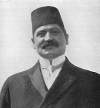
"We advise that you include the woman and children also in the orders which have been previously prescribed as to be applied to the males of the intended persons. Select employees of confidence for these duties."
1916 Various: World War I:
Battle of Romani: German General Kress von Kressenstein, with 15,000 Turkish troops and German machine gunners, makes a surprise attack on the British Sinai railhead at Rumani, but is repelled.
List Regiment: Gefreiter Adolf Hitler endures trench warfare in Flanders (Artois) with 3 Company, 16 Reserve Infantry Regiment [List Regiment]. [For further details, Click here.]
Death: Sir Roger Casement:

Sir Roger David Casement, an Irish-born diplomat who, in 1911, was knighted by King George V, is executed for his role in Ireland's Easter Rising.
Casement was an Irish Protestant who served as a British diplomat during the early part of the 20th century. He won international acclaim after exposing the illegal practice of slavery in the Congo and parts of South America. Despite his Ulster Protestant roots, he became an ardent supporter of the Irish independence movement and after the outbreak of World War I traveled to the United States and then to Germany to secure aid for an Irish uprising against the British.
Germany, which was at war with Great Britain, promised limited aid, and Casement was transported back to Ireland in a German submarine. On April 21, 1916, just a few days before the outbreak of the Easter Rising in Dublin, he landed in Kerry and was picked up by British authorities almost immediately. By the end of the month, the Easter Rising had been suppressed and a majority of its leaders executed. Casement was tried separately because of his illustrious past but nevertheless was found guilty of treason on June 29. On August 3, he was hanged in London. (History.com)
[Note: It was said that Casement was hanged on a comma. It would be more accurate to say that his defense as to the location of a comma in the relevant medieval law failed, together with the nonsensical assertion that, because the acts for which he was indicted took place on foreign soil, he could not be tried for treason. The case should not be confused with that of William Joyce (Lord Haw Haw) in World War II. Joyce was not a British subject.]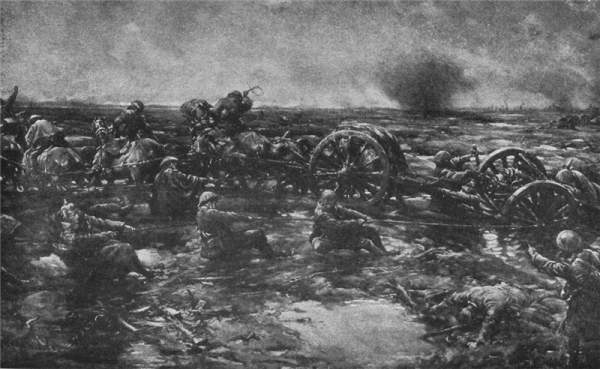
1917 World War I List Regiment (July 22-August 3): Dispatch Runner Gefreiter Adolf Hitler serves at the front with 3 Company, 16 Bavarian Reserve Infantry Regiment during Phase 2 operations in Flanders. Most of their time in the trenches gas masks are worn, while English bombers and tanks—a new terror witnessed for the very first time by most—attempt to advance over a long front through seas of mud. [For further details, Click here.]
1918 World War I List Regiment (July 20-August 4):Gefreiter Adolf Hitler's 16th RIR is tasked with building a new line of defenses on the site of the failed Second Battle of the Marne. [For further details, Click here.]
1923 Calvin Coolidge takes oath of office after Harding's death:
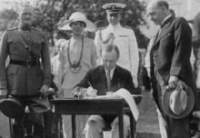
On this day in 1923, Calvin Coolidge is sworn in as the 30th president of the United States, hours after the death of President Warren G. Harding.
Born July 4, 1872, in Plymouth, Vermont, Coolidge was the son of a village storekeeper. He graduated from Amherst College in Massachusetts and worked his way up in the political ranks in that state as a Republican, from city councilman in Northampton in 1898 to governor in 1918. Coolidge made it onto the Republican ticket in 1920 as Harding's running mate, and they won a decisive victory over a Democratic pairing of James Cox and Franklin Delano Roosevelt.
In 1923, Harding's administration was tainted by the emergence of corruption scandals involving Attorney General Harry M. Daugherty and other high government officials, a group known as the Ohio Gang. A distraught Harding sought refuge from Washington during a summer vacation but died suddenly in San Francisco late on August 2, after suffering a heart attack or stroke. Coolidge got the news of Harding's death early the next morning, while visiting family in Vermont. He took the oath of office by the light of a kerosene lamp; his father, a notary public, administered it using the family's Bible.
Coolidge immediately began working to rehabilitate the tarnished image of the government's executive branch, projecting an image of old-fashioned New England values and Puritan austerity that reassured a troubled public. A man of few words—he was known as "Silent Cal"—Coolidge became an extremely popular president, winning more than 54 percent of the popular vote when he was reelected in 1924. His time in the White House coincided with an era of unprecedented material prosperity and technological advances, with consumers snapping up widely available new products such as automobiles, radios and household appliances like vacuum cleaners and washing machines.
Strongly conservative, Coolidge believed the government should do little to interfere with business and industry, whether it was to check the growing power of big corporations or to aid struggling industries such as agriculture. He supported tax cuts for businesses and high tariffs to protect U.S. goods, but vetoed aid to farmers as well as a plan to produce electric power cheaply on the Tennessee River. Taking office just five years after the First World War ended, Coolidge favored isolationism in foreign policy, and opposed American membership in the League of Nations.
Though he almost certainly would have won reelection in 1928, Coolidge decided not to run, retiring from politics before the stock market disaster of November 1929 and the ensuing Great Depression that crippled the country. He died of a heart attack in January 1933. Though remembered fondly for restoring dignity to the White House, the Coolidge era also went down in history as a time of governmental complacency in the face of impending economic disaster. (History.com)

1928 Buck Rogers: Philip Francis Nowlan's novella, Armageddon 2419 A.D., published in the American pulp magazine Amazing Stories, introduces the iconic rocket-powered hero Buck Rogers to the universe. (Dille, Burrows)
Ray Bradbury, from the Introduction to Buck Rogers, The First 60 Years in the 25th Century:What was the world like then? It was a world without one small rocket, or the promise of one. Oh, yes, later on we were to remember there were a few wild men like Professor Goddard stirring about. But no one gave him mind. He was a blathering idiot, a fool, a nothing. Von Braun? He was a teenager somewhere in Germany smitten with Fritz Lang's film Girl in the Moon, starting a cuckoo rocket society, standing out under the stars at night, a has-been who would never be. And, in 1929, think of it! Why, good grief, Armstrong, Aldrin and Collins hadn't even been born yet!
In 1929 you would have found few decent roads and no really good cross-continental highways . . . . The first streamlined trains were merely in blueprint stage. No one had broken the sound barrier. In fact, it was impossible of breakage, and anyone who dared to try his spunk against the gods of aerodynamics would be shattered like so much porcelain. That much was fact. That much was truly known. Passenger air service across the country? A few thousand people had the money. The other 120 million took the train, departed the color of milk, arrived the color of soot.
If you had a million dollars in those days you couldn't have bought, much less found, a tape recorder. Television? We would invent that in the year 1999, maybe. Radio? The merest infant, born only a few years before. Films, also, had begun to speak up, use sound, a few scant months before Dick Calkins sat down to draw Buck Rogers . . . . In 1929, our thinking was so primitive we could scarcely imagine the years before a machine capable of 'footprinting' moon dust would be invented. And even that prediction was snorted at, declared impossible by 99 percent of the people. And Buck Rogers offered us more: a trip to the asteroids, a journey to Venus, Mercury, and, yes, Jupiter itself.
1930 Volkishness: Rudolf Gorsleben dies and Werner von Bulow takes over the Edda Society's periodical, soon renaming it Hagal All All Hagal, and later simply Hagal. (THP)
Rudolf John Gorsleben was associated with the Thule Society during the Bavarian Soviet Republic of 1919 and, along with Dietrich Eckart, he was taken prisoner by the Communists, narrowly escaping execution. He threw himself into the ferment of Bavaria's voelkisch politics and formed a close working relationship with the local Germanenorden before devoting himself to literary pursuits (Goodrick-Clarke 1985: 156).
1931 Church and Reich: August 3-5 The Fulda Bishop's Conference, attended by all the Prussian bishops, the bishops of the Upper Rhenish province, as well as the Archbishop of Munich, fail to adopt a clear position on Nazi party membership. (THP)
1933 Various:
Osthofen concentration camp is closed by the Gestapo.
Antisemitism: Canada: Police in Toronto begin investigating the Swastika Club.
1936 The Nazi Olympics: Jesse Owens: wins the first of his four Olympic gold medals in Berlin: [See: Did Germany Win the 1936 Olympics?]

"I think that the greatest moment that a person can have is to stand on a victory stand," he said, "far away from home, and then, from the distance you can hear the strains of The Star- Spangled Banner, and then suddenly you make a left turn and you see the Stars and Stripes rising higher and higher, and the higher the Stars and Stripes rose the louder the strains of the Star-Spangled Banner would be heard. I think that's the greatest moment of my whole athletic career.
[See: History of Olympic Boycotts: From Berlin to Beijing.]1937 Holocaust: Italy bars foreign Jews from universities and institutions of higher learning.
1938 New anti-Jewish legislation is introduced in Italy:
Things began to change in 1938 for Italian Jews. Mussolini, in his craven desire to please the Fuhrer, initiated a comprehensive anti-Semitic campaign at the urging of the Nazis, including miscegenation laws and a media campaign against Jews. Jews were forbidden to teach in schools. Foreign Jews living as refugees in Italy were rounded up and confined in internment camps. However, these camps were a lot more like the Japanese-American internment camps than the Nazi death camps.
1939 Various:
Appeasement: Following a secret meeting in London between German Ambassador Herbert von Dirksen and Sir Horace Wilson, head of Britain's civil service and Chamberlain's closest adviser, a message is sent to Hitler informing him that Britain is prepared to increase trade with Germany, talk constructively about Germany's need for colonies, take a helpful view of Germany's need for expansion in southeast Europe, announce jointly a cooperative program to help improve the world economic situation, look seriously at the possibility of limiting armaments (including a possible loan to Germany to offset the financial difficulties limitation would bring), and finally, not to intervene in matters concerning the Greater Reich, which would include Danzig. The catch: Germany and Britain should sign a treaty of non-aggression, in which both sides would renounce unilateral aggressive action as a policy method. (THP)
[See: What Were Adolf Hitler's Major Blunders?]Memel: Jews are allowed to liquidate their property without Nazi interference.
By the beginning of 1939 half of Memel's Jews had left the city and moved to towns in the western part of Lithuania (Zemaitija), such as Palanga, Kretinga, Jurbarkas, Taurage and to Kaunas. The value of the property the Jews took with them from Memel was estimated at 100 Million Litas (1$ was then 6 Litas). Others sold their property to Germans for low prices, but when it became clear that the city and the region would soon be annexed to Germany, all Memel Jews moved to Lithuania in a panic, leaving their property behind. Transportation became so crowded and prices soared, causing poor Jews to go by foot to the nearby Lithuanian town of Gargzdai.
1940 World War II: Various:
Italians move on British Somaliland:
Italy had occupied parts of East Africa since 1936 and by 1940, when it officially entered the war, had troops far outnumbering British forces in the region. Despite their numerical superiority, the Italians had been slow to make offensive moves for fear that the British blockade in North Africa would make it impossible to get much-needed supplies, such as fuel and weapons, to sustain long engagements. But if Italy was to make greater territorial gains, it had to act, while British numbers were still relatively small.
After several forays a few miles into Sudan and Kenya, the Italians were ready for a bigger push: British Somaliland. The rationale was that it was actually a defensive move. Afraid that the British could enter Italian-occupied Ethiopia through French Somaliland, the Duke of Aosta (who was also Viceroy of Ethiopia and supreme Italian military commander of the region) ordered an invasion of British Somaliland. The British defenders at the garrison put up a fierce struggle; although they had to eventually withdraw, they inflicted 2,000 casualties on the Italian forces, while suffering only 250 of their own.
Italy would not enter the Somaliland capital, Berbera, until August 19, while Britain built up its African forces in Kenya. The war for East Africa was not over. (History.com)
Holocaust: Hitler tells the new German ambassador to Paris, Otto Abetz, that he wants to resolve the Jewish problem for all of Europe and that he wants to force the conquered countries (and persuade Germany's allies) to send their Jewish citizens away, not to Madagascar, but to the United States. (THP)
As ambassador he advised the German military administration in Paris and was responsible for dealings with Vichy France. Otto Abetz was one of the few German functionaries who admired and respected von Ribbentrop . . . . As a Party activist with the rank of SS-Standartenfuehrer he sought to seize the initiative as much as possible. Abetz initiated anti-Jewish drives, suggesting that all stateless Jews be expelled.
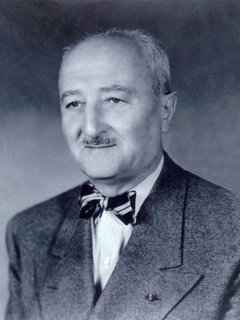
Espionage (Exact Date Unknown): A team of US Army cryptoanalysts under William F. Friedman succeed in breaking Japan's top secret Purple Code, which is used for diplomatic communications.
[See: Countdown to Infamy: Timeline to Pearl Harbor.]1941 Various:
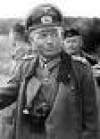
Barbarossa: Guderian, who desires to continue the thrust toward Moscow, disobeys orders and intentionally gets caught up in fighting at Roslavl. 38,000 Soviet prisoners are taken by Heeresgruppe Mitte (von Bock). Hitler, however, is not to be denied. Guderian is forced to move south. The German high command grows restless at the growing disobedience of forward commanders. Hitler is haunted by the ghost of Napoleon. He admits to Guderian, "had I known Russian tank strength . . . I would not have started this war." (Clark II)
Church and Reich:
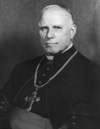
Catholic Bishop August Graf von Galen publicly denounces the Nazi euthanasia program as both "murder under German law and in the eyes of God, "and demands the prosecution for murder of those perpetrating the killings. Galen tells in detail how the innocent sick are being killed while their families are misled by false death notices. Even invalids, cripples and wounded soldiers, he says, could no longer feel safe for their lives. News of Galen's words, especially about the killing of wounded soldiers spreads like wildfire. Copies of his sermon are distributed in all corners of Germany and among the soldiers at the front. (THP)
1942 Death: Richard Willstaetter: German organic chemist whose study of the structure of plant pigments, chlorophyll included, won him the 1915 Nobel Prize for Chemistry. Willstatter's career came to "a tragic end when, as a gesture against increasing antisemitism, he announced his retirement." According to his Nobel biography[1]:
Expressions of confidence by the Faculty, by his students and by the Minister failed to shake the fifty-three year old scientist in his decision to resign. He lived on in retirement in Munich . . . . Dazzling offers both at home and abroad were alike rejected by him."
In 1938 Willstaetter fled the Gestapo and escaped to Switzerland. He spent the last three years of his life there in Muroalto near Locarno writing his autobiography.
1943 World War II: Various:

Gen. George S. Patton slaps a private at an army hospital in Sicily:
It was Aug. 3 and Patton's Seventh Army, fresh from its victory at Palermo, was driving on Messina. While touring the units under his command, "Old Blood and Guts" as he was known stopped at the 15th Evacuation Field Hospital at Nicosia to pay his respects to casualties being treated there. As Patton visited the recovery ward, he spied Charles Kuhl a rifleman with the 26th Infantry huddled on a supply crate. The 18-year-old private had been pulled from combat to recuperate from what doctors characterized as battle fatigue (today it would be considered post-traumatic stress disorder). Kuhl, who was also racked with malaria and dysentery, reportedly had a 102-degree fever at the time. The general asked the rifleman about his injuries.
"I guess I can't take it," came the young man's unsteady reply. Patton exploded. As hospital staff looked on in disbelief, the general yanked the soldier to his feet, called him a coward and slapped him across the face with a leather glove. The enraged general then chased the youth from the tent with a kick to the backside. Kuhl was moved by hospital staff to another tent and treated for his illness.
Later that day, the general noted the incident in his diary, writing that the object of his diatribe was little more than a "weakling". Within 48 hours, a memo from Seventh Army headquarters went out directing all commanders to cease and desist sending battle fatigue cases to the rear. "Such men . . . bring discredit on the army and disgrace to their comrades," Patton wrote.
Days later, while visiting the 93rd Evacuation Hospital at San Stephano, the general encountered Pvt. Paul Bennet, age 21. The artilleryman from South Carolina had been sent to the rear to recover from physical exhaustion and dehydration. Patton approached the seemingly unscathed soldier as he sat trembling.
"It's my nerves," the private blurted out when the general inquired about his condition. "I can't stand the shelling anymore." "Hell, you're just a goddamned coward," Patton roared and then struck the soldier across the face. Bennet recoiled under the blows, which knocked his helmet from his head. "You're going back to the front lines," the general cried adding that he didn't care if the young man was shot and killed there. "I ought to shoot you myself," he shouted, drawing his pistol.
Medics quickly leaped forward and hustled Bennet from the tent as the general explained to the gaping onlookers that it made his "blood boil" to have "yellow-bellied bastards being babied."
Eyewitness accounts from both the Aug. 3 incident at Nicosia and the disturbance at the 93rd Evac Hospital were collected and within 10 days, Eisenhower delivered Patton a strongly worded rebuke. "I clearly understand that firm and drastic measures are at times necessary in order to secure the desired objectives. But this does not excuse brutality, abuse of the sick, nor exhibition of uncontrollable temper in front of subordinates," Ike wrote. "I must so seriously question your good judgement and your self-discipline as to raise serious doubts in my mind as to your future usefulness."
While no charges would be laid (despite ample grounds), Eisenhower directed Patton apologize to all concerned. The tarnished general first invited both Kuhl and Bennet to his command post where he made what staff characterized as grudgingly apology for his outbursts. Later, Patton spoke to every division in his command expressing regret over the incidents. He was reportedly warmly received by the men. The general also penned a personal letter to Eisenhower seeking forgiveness. It all should have ended there.
Public opinion condemned by Patton's behaviour. By late 1943, newspaper editorial pages across the country were demanding his stars; legislators in Washington echoed the calls. Oklahoma representative Jed Johnson (D) blasted the general's conduct as "despicable", while Charles Hoeven a Republican from Iowa (himself a combat veteran) commented that tyrants like Patton had no place in the army. Even the retired John "Blackjack" Pershing, chief of American forces in France in World War One and Patton's own mentor, condemned the general for his conduct. Eisenhower was compelled to pull Patton from front-line duty until the clamour subsided. [For further information, click here.]
Russian front: Start of a Soviet offensive from the Belgorod area toward Poltava after the failure of Operation Zitadelle.
To the south, the Soviets blasted through Army Group South's Belgorod positions and headed for Kharkov once again. Though intense battles of movement throughout late July and into August 1943 saw the Tigers blunting Soviet tanks on one axis, they were soon outflanked on another line to the west as the Soviets advanced down the Psel, and Kharkov had to be evacuated for the final time on 22 August.
1944 Various:
Genocide: Gypsies:
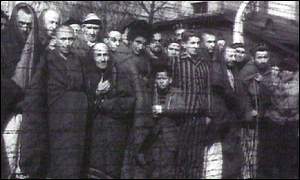
Of the total of 20,943 Gypsies registered as prisoners in Auschwitz, the last 2,897 are sent to the gas chambers. 3,461 had been transferred to other camps, while all the others died in Auschwitz from starvation, infectious disease, or by gassing. (THP)
Like the Jews, Gypsies were singled out by the Nazis for racial persecution and annihilation. They were 'nonpersons,' of 'foreign blood,' 'labor-shy,' and as such were termed asocials. To a degree, they shared the fate of the Jews in their ghettos, in the extermination camps, before firing squads, as medical guinea pigs, and being injected with lethal substances.
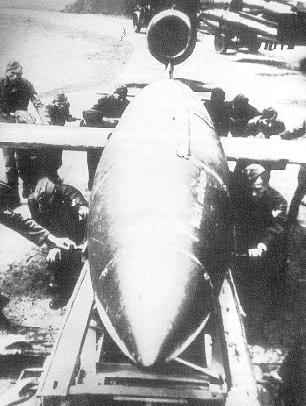
In the afternoon (at a conference on August 2) Speer speaks for two hours ... giving them for the first time the detailed new production figures [including those for the V-1 and A-4, which will become the V-2] which cause a great sensation: his achievements, of which the Gauleiter really had no idea, are very impressive and have a calming effect on them.



1945 World War II: Various:
Stalin decrees that an interagency commission on the V-2 be empowered to recruit experts from various Soviet industries to jump-start a Soviet rocket program. (Menaul)
Burma: Chinese troops under American General Joseph 'Vinegar Joe' Stilwell take the town of Myitkyina from the Japanese. Detachment 101 harries the Japanese in Burma and provides close support for regular Allied forces.
1946 Nuremberg Tribunal: On the One Hundred Ninety-Fourth Day of the trial, the question of the criminal organizations is considered as SS man Friedrich Karl Freiherr von Eberstein testifies:
In the course of the day of 30 June a certain SS Obersturmbannfuehrer Beutel came to me from the SD with a special order which he had received from Heydrich. He was a younger man, this Beutel, and he did not know what to do, so he came to me to obtain my advice, as an older man. He had an order in which there were listed approximately 28 names, and in a post-script it appeared that some of these men were to be arrested and others were to be executed. This document had no signature on it and therefore I advised this Obersturmbannfuehrer to get positive clarification as to what should take place and warned him emphatically against any rash action. Then, as far as I know, a courier was sent to Berlin and this courier then brought back eight orders of execution which came from Heydrich. The order read approximately as follows: By order of the Fuehrer and Reich Chancellor-and then followed the name of the person concerned-so and so is condemned to death by shooting for high treason. These documents were signed by Heydrich. The signature was undoubtedly genuine and they were stamped with the official stamp of the office which Heydrich directed in Berlin; and on the basis of these documents eight members of the SA and the Party-eight persons in all-were shot by the political police of Saxony in Dresden. Besides that, a Hitler Youth leader was shot in Plauen and still another person in Chemnitz. That is what I know about it.
[For the full text of today's proceedings, Click here.]1948 Cold War: Chambers accuses Hiss of being a communist spy:

In hearings before the House Un-American Activities Committee (HUAC), Whittaker Chambers accuses former State Department official Alger Hiss of being a communist and a spy for the Soviet Union. The accusation set into motion a series of events that eventually resulted in the trial and conviction of Hiss for perjury.
Chambers was a little known figure prior to his 1948 appearance before HUAC. He was a self-professed former member of the Communist Party. Chambers also admitted to having served as a spy for the Soviet Union. He left the Communist Party in 1938 and offered his services to the FBI as an informant on communist activities in the United States. By 1948, he was serving as an editor for Time magazine. At that time, HUAC was involved in a series of hearings investigating communist machinations in the United States. Chambers was called as a witness, and he appeared before the committee on August 3, 1948. He dropped a bombshell during his testimony. Chambers accused former State Department official Alger Hiss of having been a communist and a spy during the 1930s. Hiss was one of the most respected men in Washington. He had been heavily involved in America's wartime diplomacy and attended the Yalta and Potsdam conferences as an American representative. In 1948, he was serving as president of the Carnegie Endowment for International Peace.
Hiss angrily denied the charges and declared that he did not even know Whittaker Chambers. He later admitted that he knew Chambers, but at the time he had been using a different name—George Crosley. In the weeks that followed Chambers' appearance before HUAC, the two men exchanged charges and countercharges and their respective stories became more and more muddled. Finally, after Chambers publicly declared that Hiss had been a communist "and may be one now," Hiss filed a slander suit. During the course of that trial, Chambers produced microfilmed copies of classified State Department documents from the 1930s, which he had hidden in hollowed-out pumpkins on his farm. The "Pumpkin Papers" were used as evidence to support his claim that Hiss had passed the papers to him for delivery to the Soviets. Based on this evidence, Hiss was indicted for perjury for lying to HUAC and a federal grand jury about his membership in the Communist Party. The statute of limitations had run out for other charges related to his supposed activities in the 1930s. After the first trial ended with a hung jury, Hiss was convicted in January 1950 and served 44 months in jail. Hiss always maintained his complete innocence. For his part, Chambers remained equally adamant in his accusations about Hiss. (History.com)
1988 Soviets release Mathias Rust: The daring young West German pilot . . . landed a rented Cessna on Moscow’s Red Square in 1987. Rust was serving a four-year sentence at a labor camp when the Soviets approved his extradition as a goodwill gesture to the West. [For further information, click here.]
Edited by Levi Bookin (Copy editor)
levi.bookin@gmail.com



Click to join 3rdReichStudies



Disclaimer: This site includes diverse and controversial materials—such as excerpts from the writings of racists and anti-Semites—so that its readers can learn the nature and extent of hate and anti-Semitic discourse. It is our sincere belief that only the informed citizen can prevail over the ignorance of Racialist "thought." Far from approving these writings, this site condemns racism in all of its forms and manifestations.
Fair Use Notice: This site may contain copyrighted material the use of which has not always been specifically authorized by the copyright owner. We are making such material available in our efforts to advance understanding of historical, political, human rights, economic, democracy, scientific, environmental, and social justice issues, etc. We believe this constitutes a "fair use" of any such copyrighted material as provided for in section 107 of the US Copyright Law. In accordance with Title 17 U.S.C. Section 107, the material on this site is distributed without profit to those who have expressed a prior interest in receiving the included information for research and educational purposes. If you wish to use copyrighted material from this site for purposes of your own that go beyond 'fair use', you must obtain permission from the copyright owner.
Please Note: The list-owner and moderators of 3rdReichStudies are not responsible for, and do not necessarily approve of, the random ads placed on our pages by our web server. They are, unfortunately, the price one pays for a 'free' website.